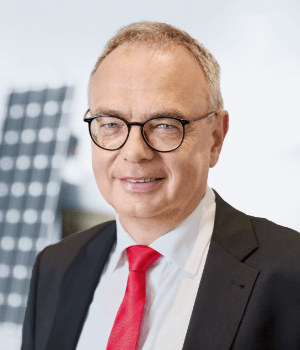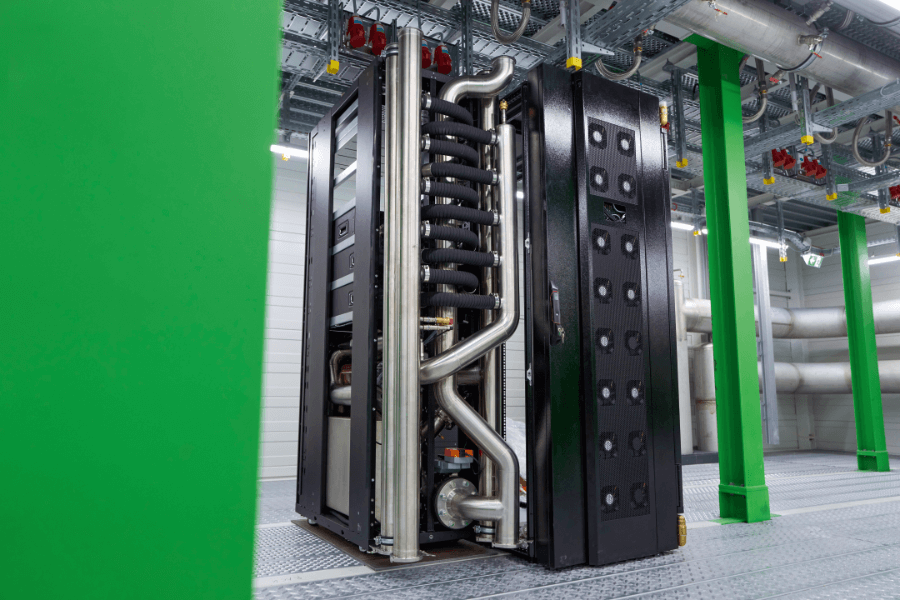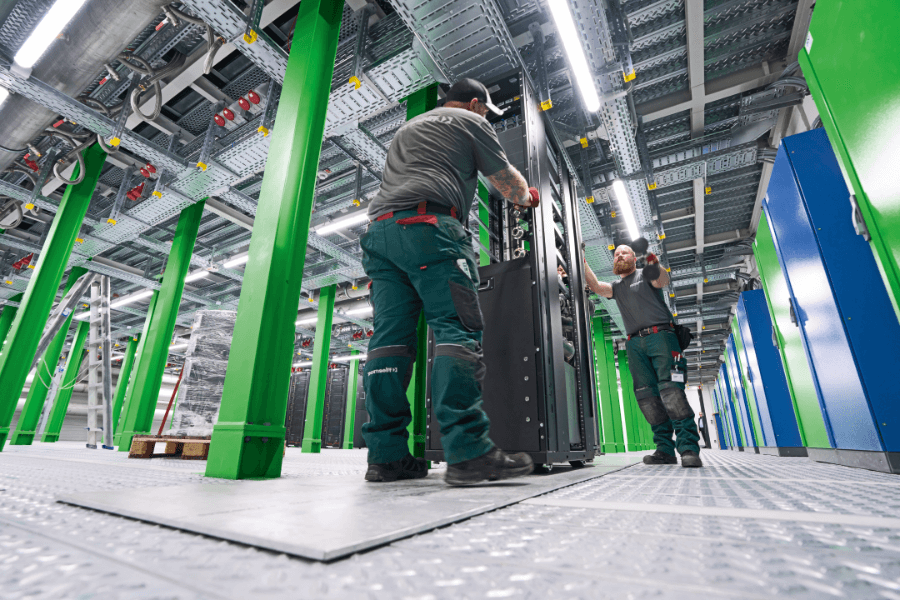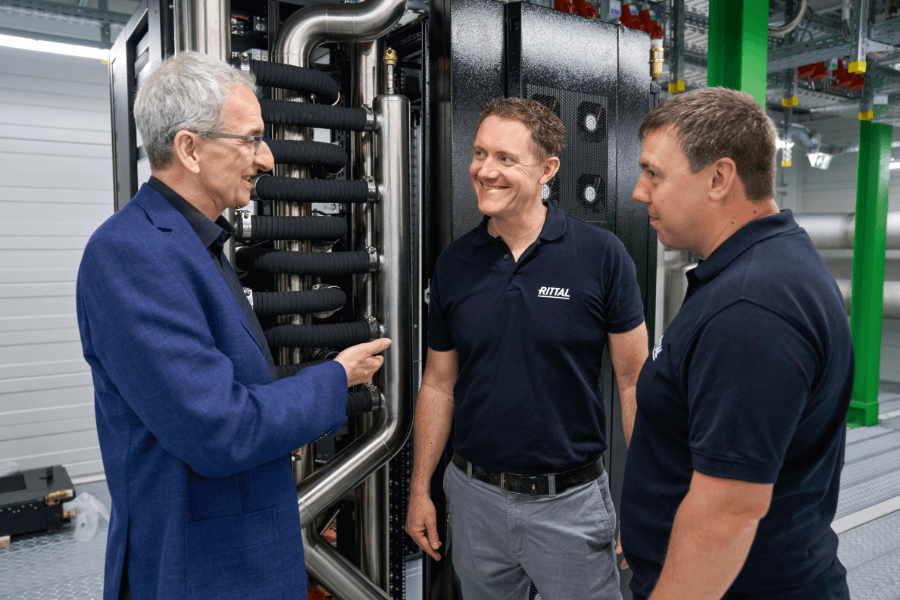Text Steffen Maltzan, David Schahinian ––– Photography Michael Koch/Digital Fotogroup
The GSI Helmholtzzentrum für Schwerionenforschung is bringing the endless expanses of outer space to Darmstadt. Scientists there are using the centre’s equipment to investigate what happened milliseconds after the Big Bang and how matter was created. “In the accelerator facility, we will be able to carry out research on matter under conditions that you would otherwise only encounter in outer space,” explains Dr Helmut Kreiser, Deputy Head of IT, Head of IT Core Services and Applications, and Head of the Green IT Cube at GSI. “FAIR”, as the Facility for Antiproton and Ion Research is known, is one of the world’s biggest research projects, accelerating particles to as much as 90 percent of the speed of light.
Experiments designed to provide insights into matter or advance cancer treatments very quickly generate data flows running at 1,000 gigabytes a second. GSI has built a dedicated data centre, known as the “Green IT Cube”, to supply that computing power. However, taking the power density up a level for high-performance computing (HPC) and AI pushes standard air cooling at the processors to its physical limits. Unless a liquid such as water can be applied directly to the chips, any large-scale AI applications in data centres are impossible.
Cooperation between practice and development
Working with server manufacturers and hyperscalers, Rittal has developed coolant distribution technology that generates a cooling output of over one megawatt in a compact rack format. This technology is being put into practice at GSI. When Dr Kreiser visited the Rittal booth at a trade fair and saw the cooling solution, he quickly realised that this coolant distribution unit (CDU) was ideal for the Green IT Cube. It plugs the final aircooled gap up to the servers. GSI already uses water to remove heat at the rear door of its racks, and this process is highly efficient. The data centre currently achieves a power usage effectiveness (PUE) below 1.07.
It was quickly agreed that the project should not be geared towards practice alone, but development, too. After all, who offers better opportunities for that than the GSI scientists? Rittal and GSI have entered into a cooperation agreement to try out the solution in practice, while also boosting its efficiency and further reducing its carbon footprint. “Thanks to innovative direct chip cooling in collaboration with Rittal, we are breaking new technical ground together and, at the same time, doing some pioneering work on how systems of this kind can be used on a larger scale in data centres,” says Dr Kreiser. Besides applying and optimising the technology at the centre, Rittal and GSI are thus also setting an example for the data centre world.
To boldly go where no man has gone before
As Uwe Scharf, Managing Director of Sales in Germany at Rittal, emphasises: “If we want to leverage AI and high-performance computing to generate added value for industry and make progress in research, we also need to act quickly to create the necessary prerequisites in data centres.”
roblems relating to installation, operation and maintenance are solved, the sooner operators of large data centres will use solutions of this kind. “This infrastructure must be created quickly in Germany, too, so that AI can become a growth driver for industry, research and the digital sector,” explains Scharf. “We are driving forward AI applications in industry software with Eplan and doing the groundwork for the IT infrastructure with GSI. If we get it right, research, industry and the digital economy can really take off,” he adds.
Using AI to optimise AI
One of the biggest challenges when it comes to the widespread use of AI applications is managing their sizeable energy consumption. In the collaboration between Rittal and GSI, this type of optimisation is therefore a top priority – not just at equipment level, but throughout the data centre as an end-to-end cooling system. The start-up company etalytics in Darmstadt is contributing to the project with an AI-based solution. A spin-off founded from a research group at the Technical University of Darmstadt, etalytics focuses on deep-tech developments from data analysis, AI and the energy sciences, taking them from the research stage and putting them into practice. Utilising digital twins of the system, AI from this start-up in the Hesse region of Germany ensures greater energy efficiency when using AI applications.




